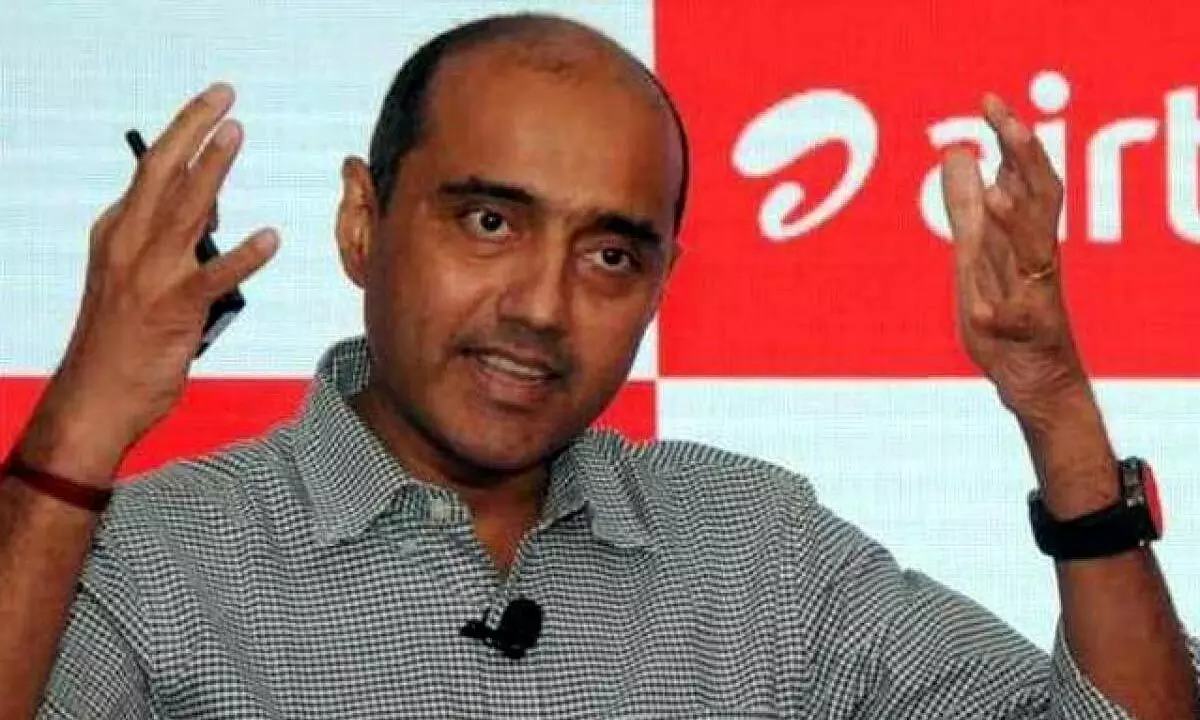Tariffs need to go up; industry should become viable: Airtel CEO
Share :

CEO Gopal Vittal
Telecom tariffs in India are low and need to go up, Bharti Airtel CEO Gopal Vittal said on Wednesday, asserting that the industry needs to become viable.
New Delhi: Telecom tariffs in India are low and need to go up, Bharti Airtel CEO Gopal Vittal said on Wednesday, asserting that the industry needs to become viable.
The Airtel top honcho described 5G as a "long haul" where use cases are still evolving globally, and made it clear that the company is not in any race to beat its drum on having the largest, fastest rollout, but instead is sharply focused on delivering good experience for its 5G customers. He said Airtel does not believe in higher 5G tariff, but will continue to strive for overall hike in tariffs, while keeping the service most affordable and high quality. "We also understand that the needs of different segments of customers and really don't believe in one-size-fits-all.
"For the telecom industry to continue to invest and deliver the digital vision of India, the industry needs to be viable and cross subsidisation, therefore or using the power of the balance sheet is not a sustainable proposition at the end," Vittal said at the Q2 earnings call. Vibrant competition, affordable tariffs, and financial viability of the industry can all go hand in hand, he said.
To a question on timing and possible extent of any tariff hike, Vittal noted that tariffs are low in India. "...this is not all in our hands, tariffs are very low in India, both the average revenue per user as well as rate per GB. If you plot both of those on two axis, then we are right at the bottom on both," he said, adding that tariffs do need to go up, and the industry needs to become viable. "But it is not at all in our hands. I would say just say wait and watch. The question is not whether it will happen, it is when it will happen. We've already seen two rounds of tariff increase since the launch of Reliance Jio, and hopefully it will happen at some stage, not in the distant future," he said, while declining to commit to specific timelines.
On 5G, he said the challenge right now is that the "real" use case on 5G today is "only speed". "So on the small device that you carry in your pocket, you may get 400-500 Mbps speeds... but the fact is for the applications that you use on that device, typically messaging or video or email, you really don't need more than 4-7 Mbps speeds. "So users are actually oblivious of whether they have 5G or 4G, they are looking for a good data experience," he said. More applications have to be on 5G, harnessing the true power of the fifth generation technology, he said.
"You need more applications to be written on 5G networks, which really use the benefit of this technology which, unfortunately, is not the case... not just in India, but in no market anywhere," Vittal said. Except for some private 5G networks, and specific B2B use cases, which have modest revenue streams associated with it, the fundamental use cases for 5G "are still not there". "That said, I think the reason 5G usage is today much higher... is simply because it's free. So the data is corrupted by the fact that it is free... if it is not free, then the real usage is what we will be able to study," he said. India's second largest telecom operator Bharti Airtel on Tuesday reported a 37.5 per cent year-on-year fall in consolidated net profit to Rs 1,341 crore for the September quarter, weighed down by one-time exceptional charge. Bharti Airtel, which competes in the market with Reliance Jio and Vodafone Idea, saw its September quarter revenue climb 7.3 per cent year-on-year to Rs 37,044 crore "backed by strong and consistent performance in India operations". Net income (after exceptional items) at about Rs 1,341 crore, was 37.5 per cent lower than the year-ago period. Net income (before exceptional items) stood at nearly Rs 2,960 crore.







